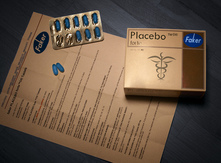- Home
- About Us
- TSPT Academy
- Online Courses
-
Resources
- Newsletter
- Business Minded Sports Physio Podcast
- Day in the Life of a Sports PT
- Residency Corner
-
Special Tests
>
-
Cervical Spine
>
- Alar Ligament Test
- Bakody's Sign
- Cervical Distraction Test
- Cervical Rotation Lateral Flexion Test
- Craniocervical Flexion Test (CCFT)
- Deep Neck Flexor Endurance Test
- Posterior-Anterior Segmental Mobility
- Segmental Mobility
- Sharp-Purser Test
- Spurling's Maneuver
- Transverse Ligament Test
- ULNT - Median
- ULNT - Radial
- ULNT - Ulnar
- Vertebral Artery Test
- Thoracic Spine >
-
Lumbar Spine/Sacroiliac Joint
>
- Active Sit-Up Test
- Alternate Gillet Test
- Crossed Straight Leg Raise Test
- Extensor Endurance Test
- FABER Test
- Fortin's Sign
- Gaenslen Test
- Gillet Test
- Gower's Sign
- Lumbar Quadrant Test
- POSH Test
- Posteroanterior Mobility
- Prone Knee Bend Test
- Prone Instability Test
- Resisted Abduction Test
- Sacral Clearing Test
- Seated Forward Flexion Test
- SIJ Compression/Distraction Test
- Slump Test
- Sphinx Test
- Spine Rotators & Multifidus Test
- Squish Test
- Standing Forward Flexion Test
- Straight Leg Raise Test
- Supine to Long Sit Test
-
Shoulder
>
- Active Compression Test
- Anterior Apprehension
- Biceps Load Test II
- Drop Arm Sign
- External Rotation Lag Sign
- Hawkins-Kennedy Impingement Sign
- Horizontal Adduction Test
- Internal Rotation Lag Sign
- Jobe Test
- Ludington's Test
- Neer Test
- Painful Arc Sign
- Pronated Load Test
- Resisted Supination External Rotation Test
- Speed's Test
- Posterior Apprehension
- Sulcus Sign
- Thoracic Outlet Tests >
- Yergason's Test
- Elbow >
- Wrist/Hand >
- Hip >
- Knee >
- Foot/Ankle >
-
Cervical Spine
>
- I want Financial Freedom
- I want Professional Growth
- I want Clinical Mastery
 Each month at the Harris Health Orthopedic Residency, one of the clinicians holds a journal club. Last month, one of my fellow residents and I chose to lead the journal club. We chose the recent JOSPT editorial written by Dr. Benz and Dr. Flynn entitled, "Placebo, Nocebo, and Expectations: Leveraging Positive Outcomes." This article was a great introduction to the topic of the Placebo Effect. To begin, you must first ask yourself: "How much do I currently use the placebo effect in my practice?" or better yet, "Am I using placebo effects without knowing it?" A placebo is defined as a simulated or otherwise medically ineffectual treatment for a disease or other medical condition intended to deceive the recipient. To answer the first question, we ALL use placebos with each patient interaction, whether intentionally or not. Our clinical mannerisms, our tone of voice, how we dress, and the clinic environment are all placebo effects. BUT, in order for a placebo to be effective, the patient must be able to assign a positive meaning to these things. An interesting study looked at two groups of people given a certain medication. One group was given an Aspirin, the second group was given the generic form of Aspirin. The chemical composition was the exact same; however, the group who received Aspirin had much better results. How is this possible? The group who received Aspirin were able to assign a meaning or positive correlation with that intervention. They could both physiologically and psychologically agree with the treatment, and therefore the treatment was more effective. The placebo effect is all about expectations! Dr. Benz and Flynn conclude the editorial by saying we should use the placebo as another "tool in the proverbial tool kit." They say that the power of the mind to react positively to a genuinely weak (think sham) but perceptually agreeable intervention is far more compelling than forcing a highly evidenced based intervention on a patient who cannot assign meaning to that intervention. Next time you are trying to "sell" a patient on an intervention, think about the words you use, how you approach the subject, and the patient's expectation. Above all, act confident. If you display confidence in the treatment, the patient will have more confidence as well. -Jim
2 Comments
9/21/2014 03:31:37 pm
With the fame of yoga rising all through the western world, you have most likely found out about its recuperating powers at this point. Nonetheless, you still aren't certain exactly what sort of yoga may be a good fit for your lifestyle.
Reply
10/10/2022 05:48:56 am
The placebo effect is one of the oldest medical theories. It's an incredibly powerful concept, and has been proven to be extremely effective countless times over. In this blog post we're going to talk about what the Placebo Effect is, how it works, and introduce some examples that might help illustrate it.
Reply
Leave a Reply. |
Copyright © The Student Physical Therapist LLC 2023

 RSS Feed
RSS Feed